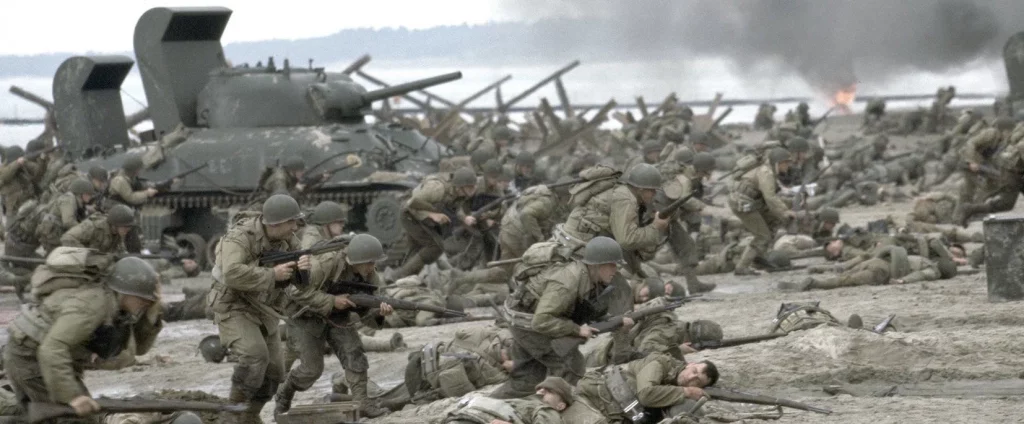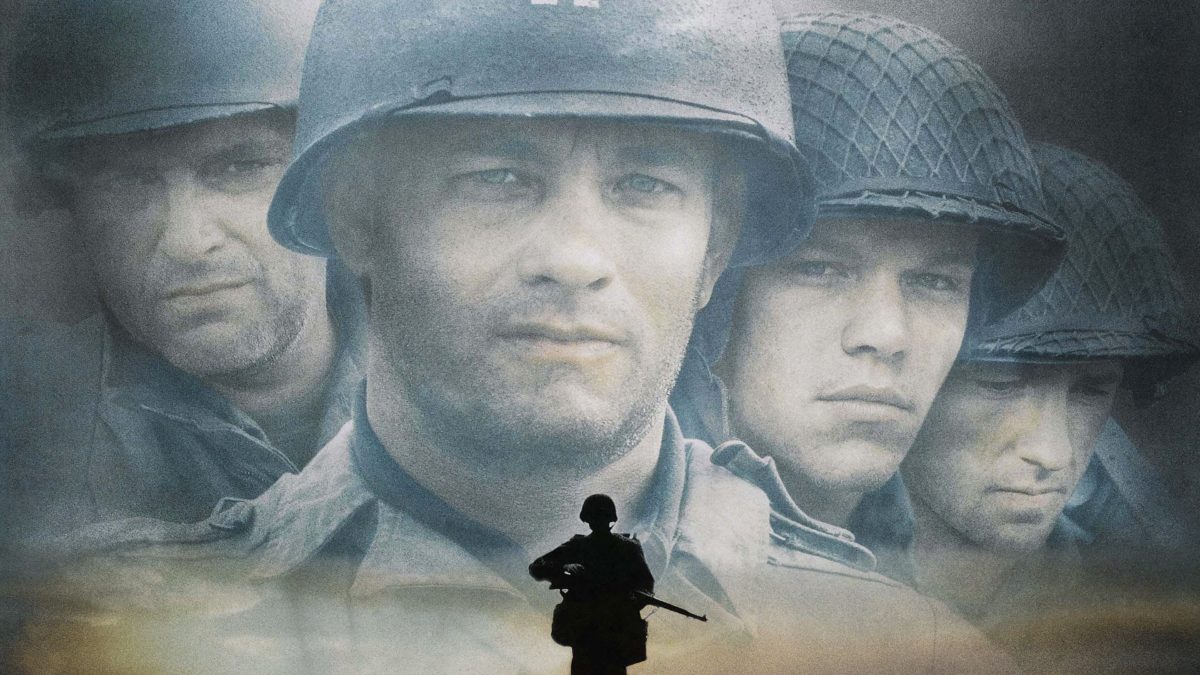James, earn this... earn it
I’d have less of an objection to the gnarly thematic weirdness of Saving Private Ryan if the film didn’t rub our face in it: The movie ends with an old man monologuing and weeping about whether we, as a people, have “earned” the valiant sacrifice of fallen soldiers.
Except we spent the previous 90+ minutes on a mission that is identified from the start as pointless PR that will risk numerous lives for the sake of a saving one other.
So which is it? What is war? A valiant, necessary sacrifice to preserve freedom? Or an arbitrary, meaningless destruction of humanity in the name of nationalism?
I suppose it might have been possible to interrogate the contradictions of those viewpoints in some sort of meaningful way, and Steven Spielberg does lazily circle around some of the movie’s ironies. But he’s too much of a sentimentalist and populist to turn Saving Private Ryan into anything bracing.
Thankfully, the movie itself, as a physical specimen, is a technical marvel, ingenious in all the way the movie’s thematic spine is scoliotic.

What is there left to say about the D-Day segment? It’s one of the most-praised slices of filmmaking craft in the past half-century years, and with good reason. It’s a visceral representation of the unspeakable terror of war that remains beyond anything I’ve ever seen. I’m no war movie expert, but every post-1998 battle scene I’ve watched in the genre has been indebted to (or reacted to) the hyper-realist sensory assault of that early 20-minute segment.
As the movie shifts towards its rescue mission story proper, it finds Spielberg in much more conventional territory. Some plot points are hackneyed and characters formulaic, but it’s a well-crafted and enjoyable story elevated by the presence of Tom Hanks as the sensible captain.
There are certainly some flaws here, some of which are straight up nuisances — Spielberg’s and writer Robert Rodat’s stab at saucy solider banter is horribly cringey — and some of which are head-scratchers — is Jeremy Davies’ Upham’s growth arc of learning to kill POWs supposed to be him toughening up in a positive way, or him breaking bad in war-ruins-the-good way? But it’s a well-crafted and engaging story. The climactic bridge battle is not quite the D-day segment, but it’s not far behind.
And then we’re left with that floppy wet fish of the time-jump ending, unsure what to feel about anything we just watched except that Spielberg almost made a masterpiece if only he had spent a little bit more time reflecting upon François Truffaut’s famous quote about (anti-)war movies.
Note: Regardless my mixed feelings for the movie and its ending, I’ll always have a soft spot for the movie, as I used the “Earn This” for the title of my first blog.
- Review Series: Tom Hanks
- Review Series: Top 100 (2009 List)
- Review Series: Steven Spielberg
Is It Good?
Exceptionally Good (7/8)
Dan is the founder and head critic of The Goods. Follow Dan on Letterboxd. Join the Discord for updates and discussion.

